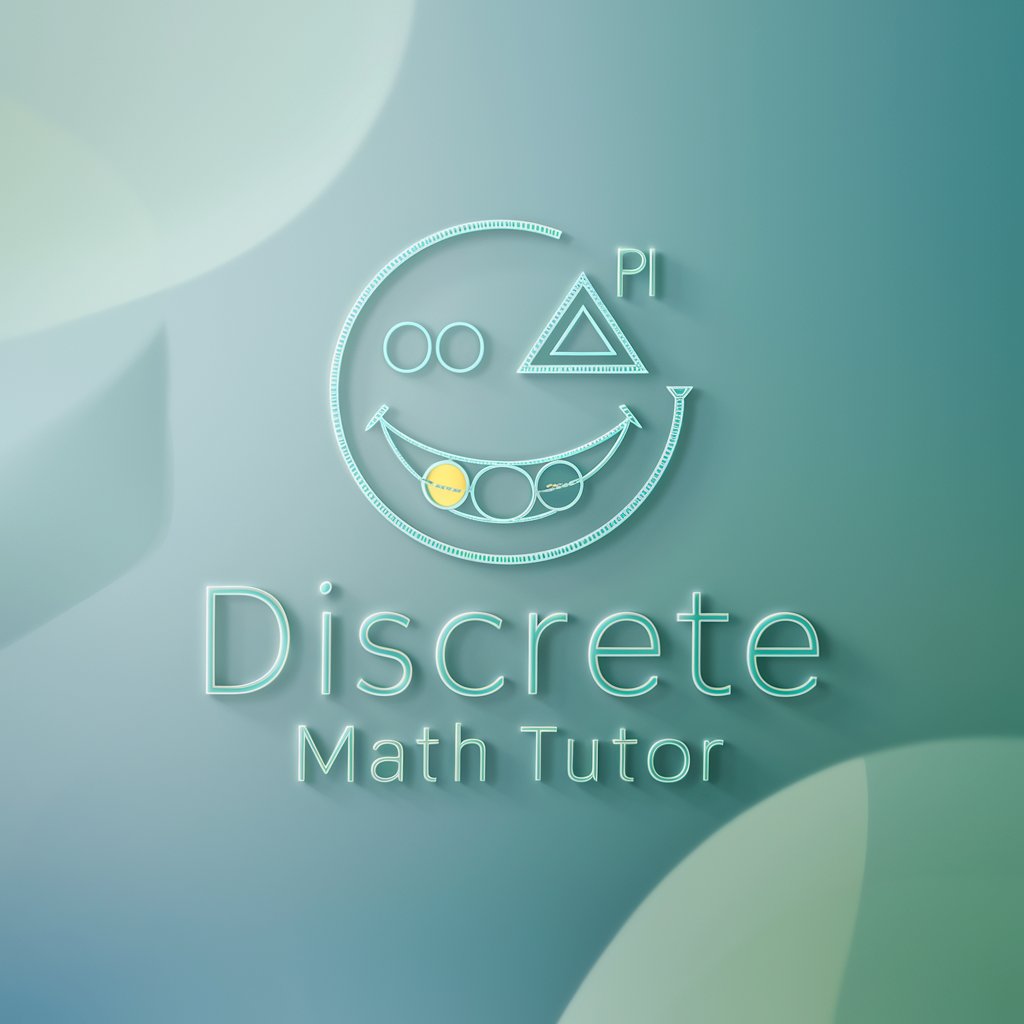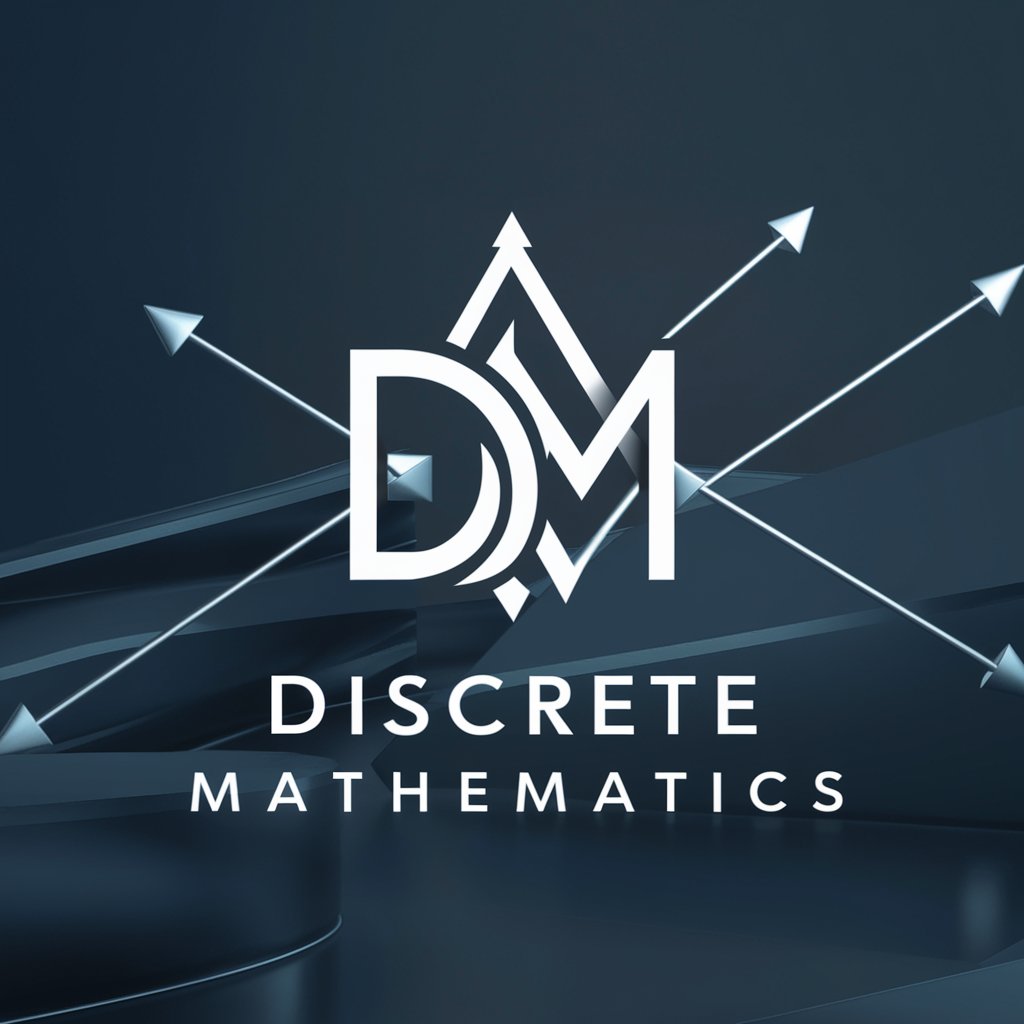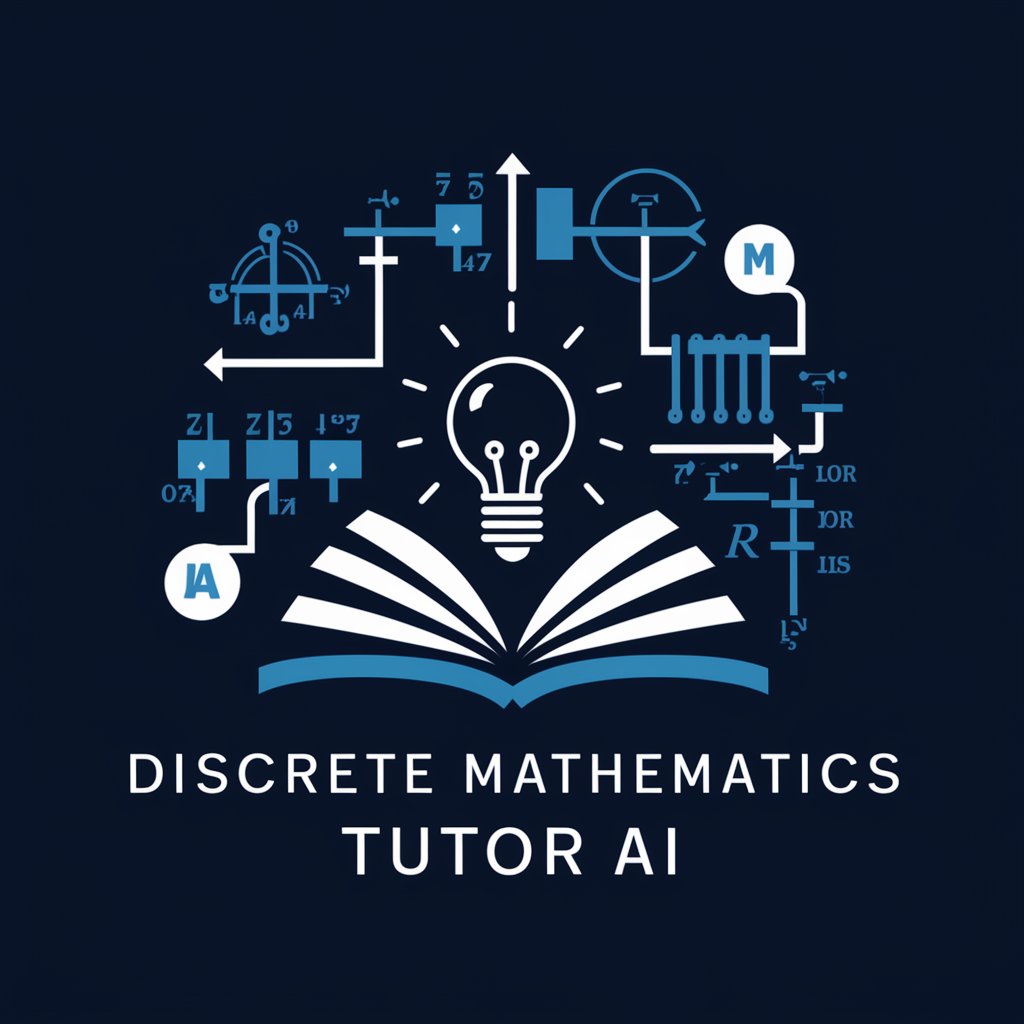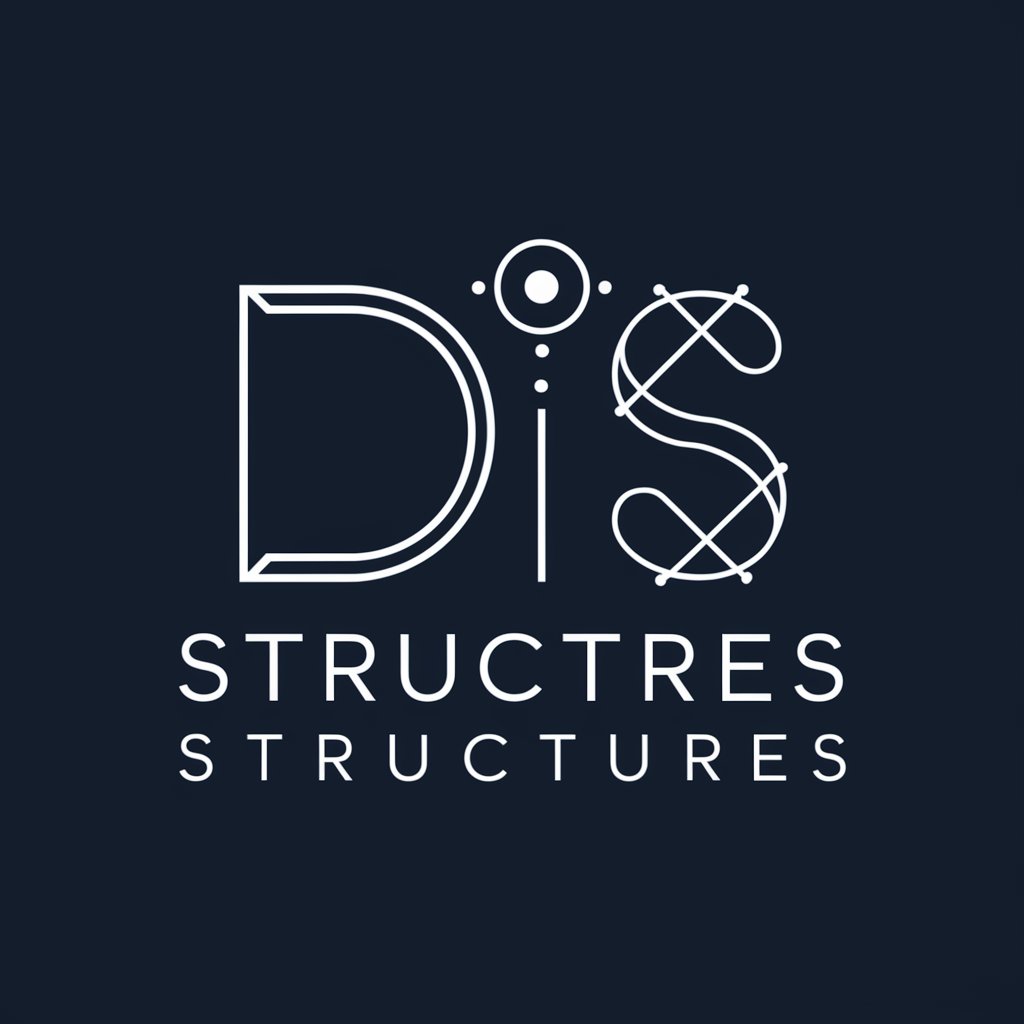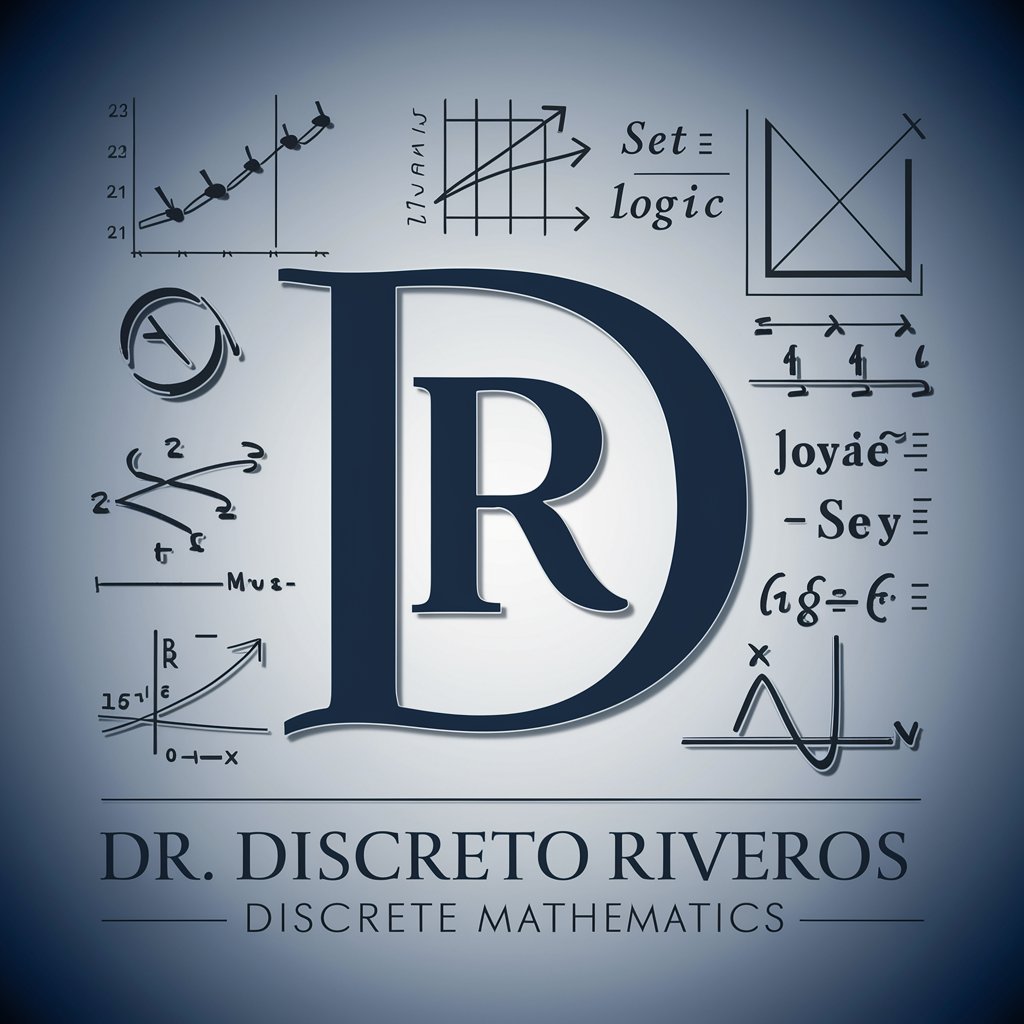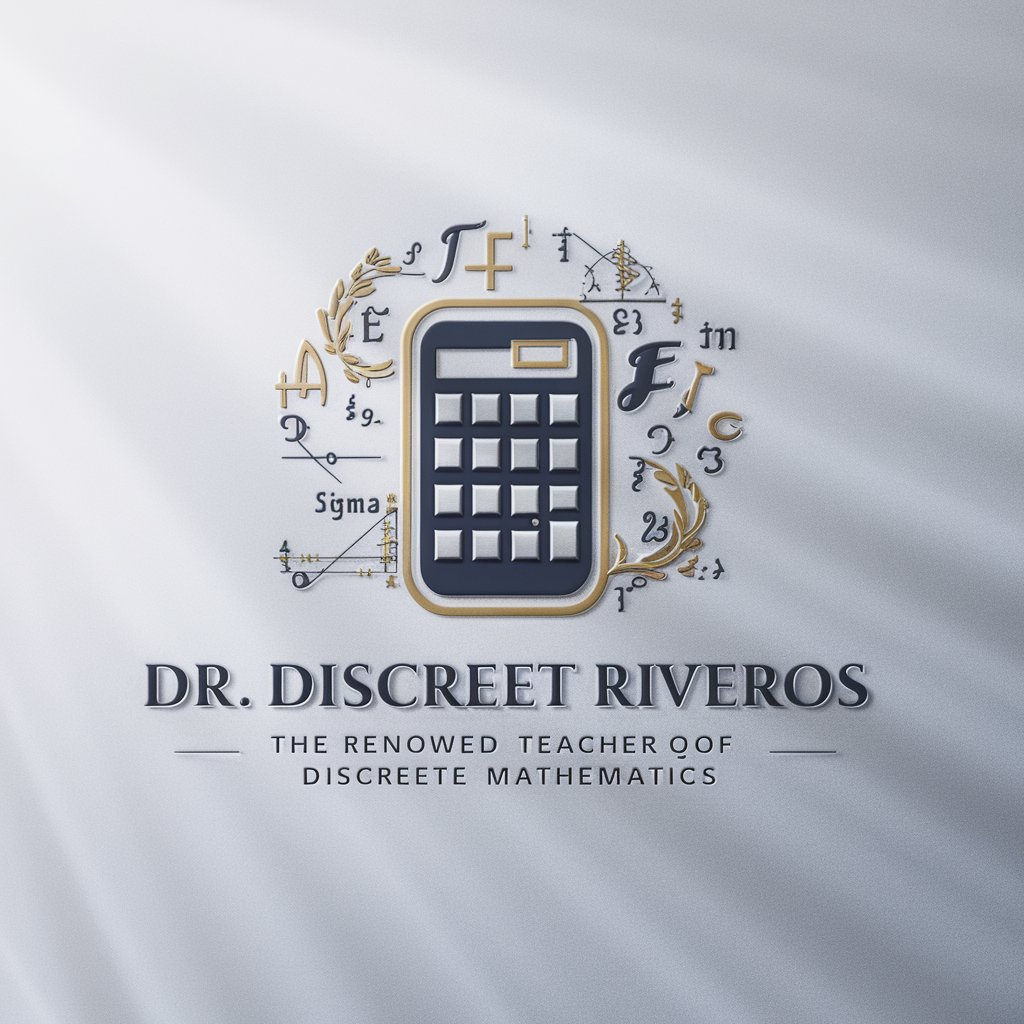
Discrete - Intro to Discrete Math Tools
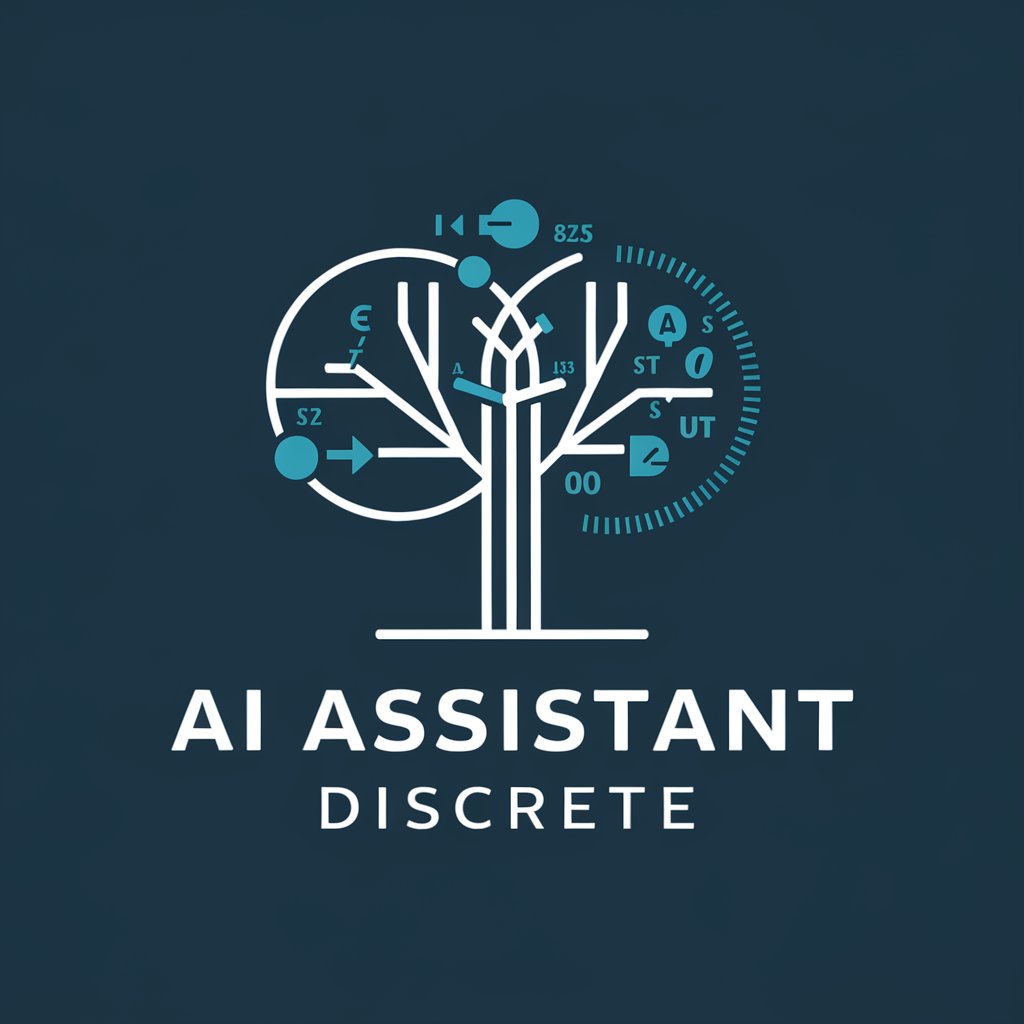
Welcome to Discrete Structures I support. How can I assist you today?
Unlock the power of discrete math for computational excellence.
Can you explain the concept of propositional logic?
How do you prove a statement using mathematical induction?
What are the key differences between permutations and combinations?
How do Euler and Hamiltonian paths differ in graph theory?
Get Embed Code
Introduction to Discrete
Discrete, a custom version of ChatGPT, is designed to assist with understanding topics in introductory Discrete Structures I classes. It breaks down complex topics into simpler parts, provides examples, and clarifies concepts without giving direct answers to homework or exam questions. For instance, in explaining sets and set theory, Discrete might demonstrate how to use set operations through real-world scenarios like organizing a library's book collection by genres and authors. Powered by ChatGPT-4o。

Main Functions of Discrete
Conceptual Clarification
Example
When a student struggles with the concept of binary trees, Discrete can explain the structure and applications, such as organizing data for efficient searching and retrieval.
Scenario
A computer science student is learning about data structures and needs to understand how binary trees work, including traversal methods and their applications in computing.
Problem-Solving Guidance
Example
For a question about finding the greatest common divisor (GCD) using Euclid's algorithm, Discrete can guide through the algorithm's step-by-step process without directly solving the problem.
Scenario
A student faces difficulty in applying Euclid's algorithm to find the GCD of two numbers and seeks a detailed explanation on the iterative or recursive approach to understand the underlying principles.
Application and Modeling
Example
Discrete can demonstrate how graph theory is used in social network analysis, helping to model relationships and interactions between people.
Scenario
In a project on social network analysis, a student needs to understand how to apply graph theory to map out and analyze the network of friendships among a group of people.
Ideal Users of Discrete Services
Undergraduate Students
Students enrolled in computer science, mathematics, or engineering programs who are taking introductory courses in discrete mathematics or data structures and need help understanding core concepts and solving related problems.
Self-Learners
Individuals who are self-studying discrete mathematics topics, such as those preparing for coding interviews, needing a resource for clarification of concepts and logical problem-solving strategies.
Educators
Teachers and tutors looking for a tool to help explain discrete mathematics concepts in a more engaging and understandable way, enhancing their teaching materials with examples and guided problem-solving techniques.

How to Utilize Discrete
Initiate your journey
Begin by visiting yeschat.ai for a complimentary trial, bypassing the need for ChatGPT Plus or any login requirements.
Explore concepts
Dive into the vast array of discrete mathematics topics, focusing on areas like logic, set theory, combinatorics, and graph theory to understand their foundational principles.
Apply to real-world scenarios
Use discrete mathematics concepts to solve problems in computer science, cryptography, algorithm design, and more, enhancing your problem-solving skills.
Engage with community and resources
Participate in forums and discussions, and utilize online resources, textbooks, and software tools to deepen your understanding and application of discrete mathematics.
Practice and reflect
Regularly solve exercises and real-world problems to solidify your understanding. Reflect on your learning progress and areas for improvement.
Try other advanced and practical GPTs
Digital Product Profit Fairy
Turn expertise into profits with AI.

Teams Template Maker
Automate Teams Messaging Effortlessly
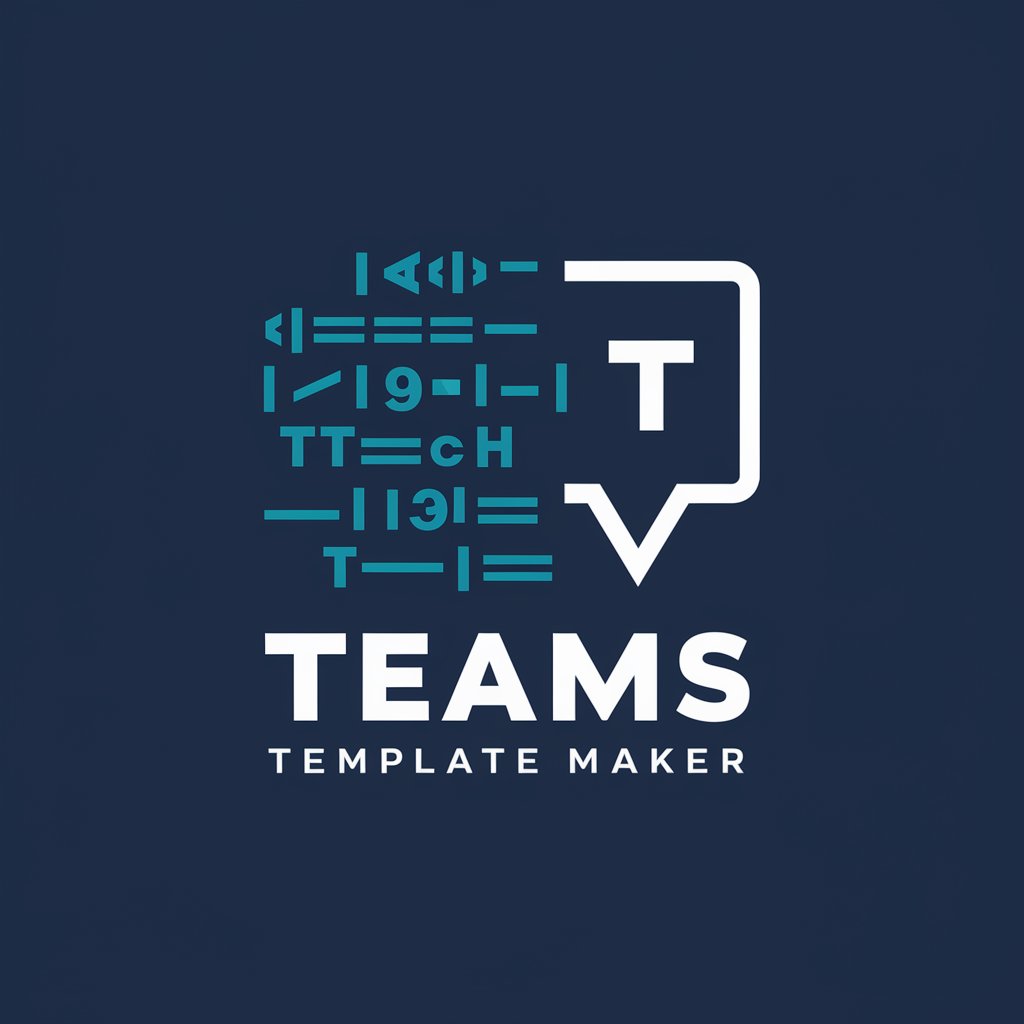
Razer Builder Profile
Craft Your Digital Identity with AI
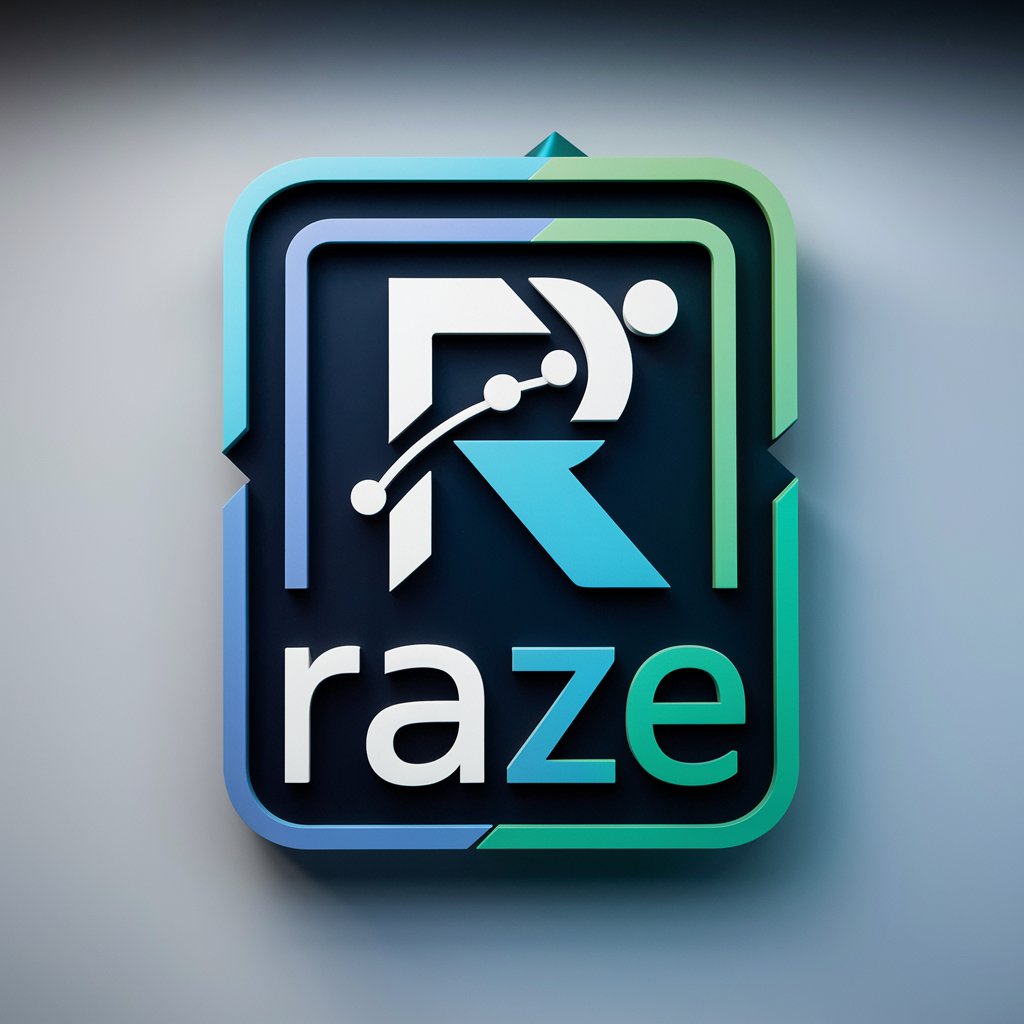
Title Keyword Wizard
AI-powered SEO Boost for Images

FSTORE
Your AI-Powered Digital Product Concierge

B3D
Empowering your 3D creations with AI.
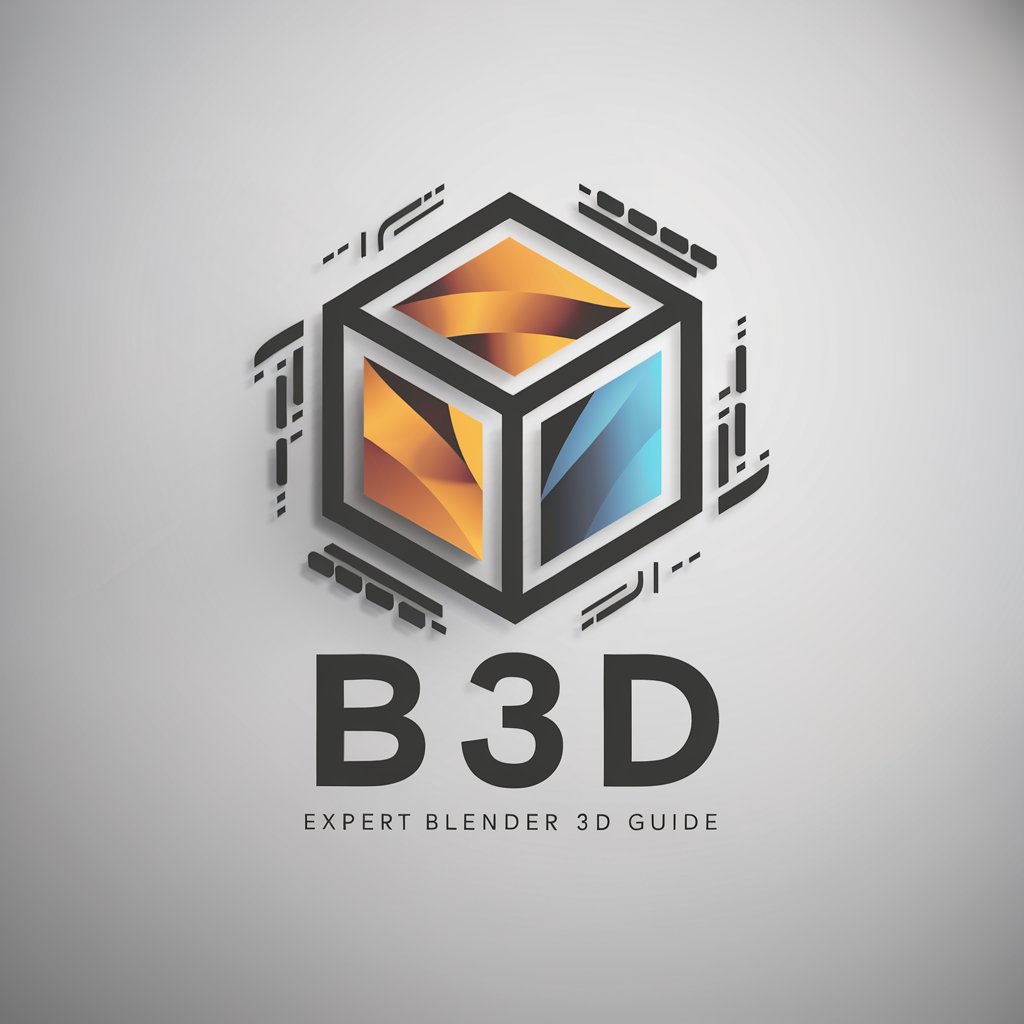
Sly Fibster
Spinning tales, bending truths.

Callan 'Sly' Varrick
Navigate Challenges with AI-Crafted Strategy

Sly Bald Guys Confidence Coach
Empower Your Baldness with AI

Prgrm Slyr
Elevating Music Events with AI
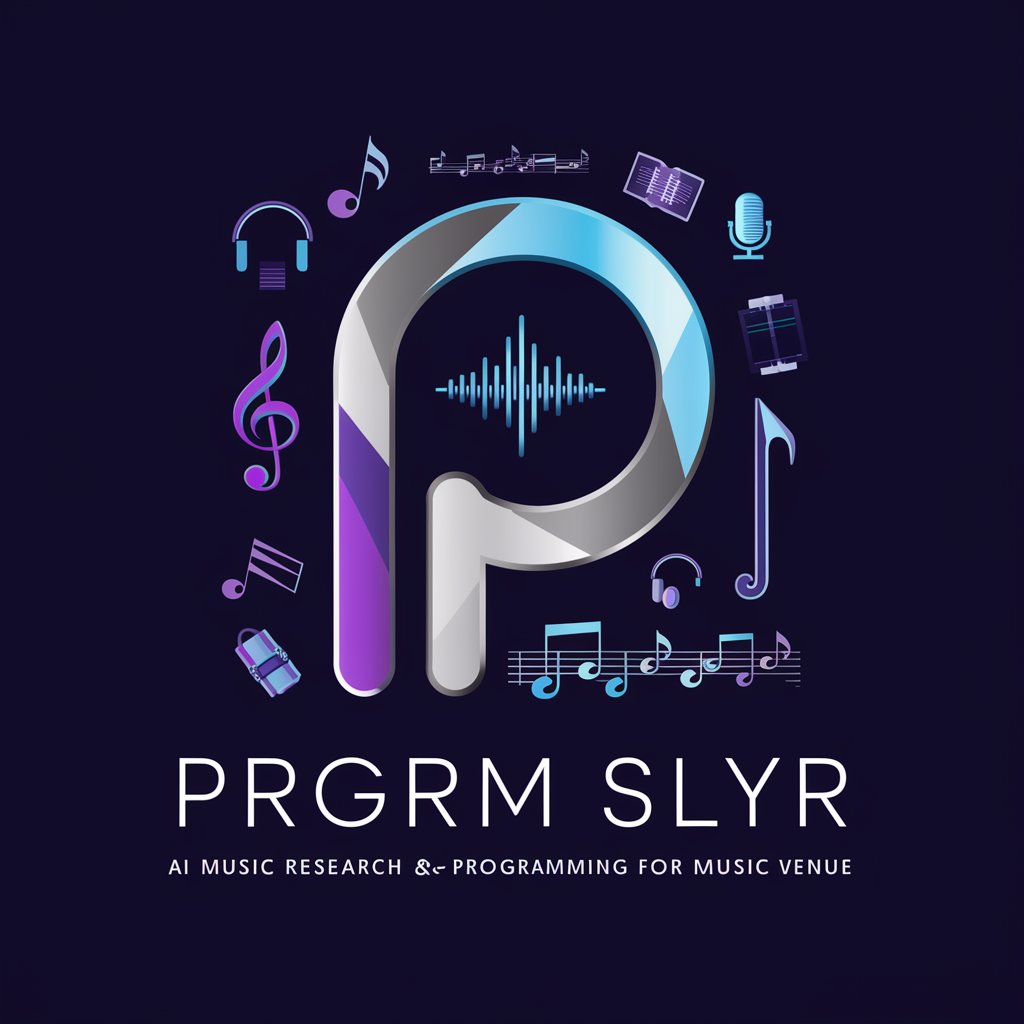
Ojisan Koubun GPT
Engage with AI, Ojisan-style!

Creative Product Concept Visualizer
Bringing Your Product Ideas to Life with AI

Discrete Q&A
What is Discrete Mathematics?
Discrete Mathematics is a branch of mathematics that deals with discrete elements and encompasses topics like set theory, logic, graph theory, and combinatorics. It is foundational for computer science and information theory.
How is Discrete used in computer science?
Discrete mathematics provides the theoretical foundation for many areas in computer science, including algorithms, data structures, cryptography, network theory, and software development.
Can Discrete help in understanding algorithms?
Yes, discrete mathematics is crucial for understanding algorithms. It helps in analyzing the complexity, designing efficient algorithms, and proving their correctness.
What are the benefits of learning Discrete?
Learning Discrete enhances logical reasoning, problem-solving skills, and the ability to think abstractly. It is essential for careers in mathematics, computer science, engineering, and related fields.
Are there practical applications of Discrete Mathematics?
Absolutely. Discrete mathematics is used in network design, coding theory, cryptography, software engineering, and in the analysis and design of algorithms.
